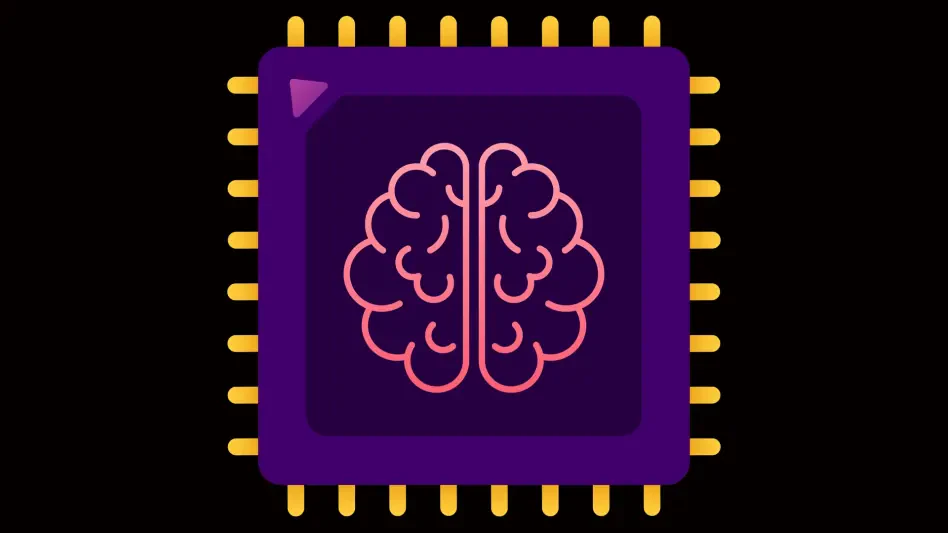Thanks to advances in neuroscience, progress in understanding the brain is improving. In late 2024, Introspective Market Research unveiled an in-depth analysis of the global neuroscience market. Valued at USD 43.5 billion in 2023, it is poised for substantial growth and is expected to reach USD 71.0 billion by 2032. This trajectory aligns with a strong CAGR of 5.6% during the forecast period from 2024 to 2032. This expansion is mainly due to 12 mental health conditions that affect 970 million people worldwide.
Another source values the global neuroscience market at $30.1 billion in 2022, projected to reach $41.6 billion by 2031, with a compound annual growth rate of 3.7% from 2023 to 2031. So, these disruptive innovators are well-positioned to shape the future of brain science and patient care.
The Future of Neuroscience: Growth Drivers and Market Dynamics
To help B2B healthcare leaders, investors, and medtech partners navigate this fast-moving sector, here is a list of high-growth neuroscience startups positioned to shape the market in 2025 and beyond. Each company is profiled with key indicators of commercial momentum and strategic relevance. For example, their 5-year global search growth reflects rising market awareness and demand, employee count, as a proxy for operational scale, and a quick overview of their core product or platform focus.
From AI-driven drug discovery platforms and FDA-cleared neuromodulation devices to enterprise-ready mental health solutions, these innovators offer actionable opportunities for partnership, investment, and technology integration across healthcare, pharma, and digital health ecosystems.
Axorus
5-year search growth: 2,435%.
Current search growth status: Reached its peak.
Year established: 2019.
Location: Loos, France.
Funding: $1.3M (Seed).
Axorus develops neuro-electronic interfaces to help reduce the symptoms of neurological disorders. The startup aims to create implants that improve patients’ quality of life. They recently received seed funding from Finovam Gestion, with additional support from Happy Capital and Nord France Amorcage.
BioSerenity
5-year search growth: 140%.
Current search growth status: Reached its peak.
Year established: 2014.
Location: Paris, France.
Funding: $119.9 million (Undisclosed).
BioSerenity is a medtech startup in neuroscience that makes wearable devices. One of them is an electroencephalography (EEG) system that captures physiological signals. The company aims to use the data from its device to improve epilepsy research. They have over 500 employees across three continents.
Blackrock Neurotech
5-year search growth: 3,600%.
Current search growth status: Reached its peak.
Year established: 2008.
Location: Salt Lake City, Utah.
Funding: $210 million (through acquisition).
Blackrock Neurotech provides brain-computer interfaces and related clinical solutions. Their “NeuroPort Array” is used in 28 implants around the world. The startup has tested its durability for six years in humans and over ten years in non-human primates.
In April 2024, Blackrock Neurotech received $200 million from Tether, which now owns a controlling interest in the company.
Brain.fm
5-year search growth: 95%.
Current search growth status: Regular.
Year established: 2015.
Location: Brooklyn, New York.
Funding: Undisclosed (Seed).
Brain.fm produces music and soundscapes that help people focus, relax, and sleep better. They use artificial intelligence and machine learning to create sounds tailored to each user’s needs. Brain.fm has received awards for its innovative approach to sound therapy, including recognition from Time Magazine as one of the Best Inventions of 2018.
BrainCo
5-year search growth: 46%.
Current search growth status: Regular.
Year established: 2015.
Location: Somerville, Massachusetts.
Funding: $6 million (Seed).
BrainCo is a neurotechnology startup that works on a brain-machine interface solution. It offers various products focused on neurotechnology for mental training and prosthetics. One of their products is a wearable device that helps reduce stress via neurofeedback. In 2019, BrainCo won the Brave Awards for “Best AI Application in Health and Fitness.”
Bitbrain
5-year search growth: 73%.
Current search growth status: Regular.
Year established: 2010.
Location: Zaragoza, Spain.
Funding: $1.6M (Grant).
BitBrain focuses on neurotechnology and creates wearable electroencephalography devices. These instruments help monitor human behavior. The enterprise started in 2010 as a spin-off from a research group at the University of Zaragoza. In November 2023, Bitbrain announced a collaboration with Noldus IT, a leading behavioral research technology company.
BrainQ
5-year search growth: 31%.
Current search growth status: Regular.
Year established: 2016.
Location: Jerusalem, Israel.
Funding: $48.8M (Series Unknown).
BrainQ creates targeted therapies for brain recovery using brain-computer interface (BCI) technology. Their AI system collects patient data in a non-invasive way to develop treatments that may help with neuro-recovery. BrainQ received funding from the European Union’s Horizon 2020 Research and Innovation program and was recognized as a promising startup by Microsoft and Calcalist in 2018.
Cala Health
5-year search growth: 97%.
Current search growth status: Regular.
Year established: 2014.
Location: Burlingame, California.
Funding: $148.3M (Series D).
Cala Health specializes in bioelectronic medicine. They provide wearable devices that deliver neurotherapeutic solutions. Their main product is a non-invasive therapy called the “Cala Trio,” which helps reduce essential tremors. In 2020, Cala Health won the Edison Award for “Diagnostics & Disease Treatment.”
Cajal Neuroscience
5-year search growth: 31%.
Current search growth status: Regular.
Year established: 2016.
Location: Jerusalem, Israel.
Funding: $48.8M (Series Unknown).
Cajal Neuroscience focuses on developing targeted therapies for brain recovery using BCI technology, similar to BrainQ. Their AI-driven system gathers patient insights non-invasively to create effective treatment options. The company has also been part of the EU’s Horizon 2020 program and received recognition from Microsoft and Calcalist in 2018.
Ceribell
5-year search growth: 7,592%.
Current search growth status: Regular.
Year established: 2014.
Location: Mountain View, California.
Funding: $220.5 million (Series C).
Ceribell creates U.S. Food and Drug Administration-approved electroencephalography systems. Their goal is to make these devices more accessible. Their system provides quick diagnoses for brain disorders without needing a specialist. In 2017, Ceribell’s EEG approach won The Good Design Award.
Earable
5-year search growth: 112%.
Current search growth status: Steady.
Year established: 2018.
Location: Boulder, Colorado.
Funding: $8.7 million (Convertible Note).
Earable created a wearable device that tracks health metrics through the ear. It measures body temperature, heart rate, respiratory rate, and other health data to help spot early signs of illness or stress. The related app provides users with personalized insights and suggestions to improve their health and wellness.
Flow Neuroscience
5-year search growth: 438%.
Current search growth status: Booming.
Year established: 2016.
Location: Malmö, Sweden.
Funding: $12.6M (Non-Equity Assistance).
Flow Neuroscience is a health and wellness company that creates medical devices for treating depression and other mental health issues. Their “medication-free” method includes a wearable apparatus linked to a mobile app, which encourages users to engage in activities that help them manage depression. Their website shows that 81% of users feel better within the first three weeks.
Hubly Surgical
5-year search growth: 6%.
Current search growth status: Consistent.
Year established: 2019.
Location: Lisle, Illinois.
Funding: $3 million (Seed round).
Hubly Surgical developed the first U.S. Food and Drug Administration-cleared cordless, single-use cranial drill for neurosurgery. The Hubly Drill includes a SMART Auto-Stop feature and a special drill bit to reduce the risk of over-plunge. After receiving FDA approval in May 2023, the startup secured $3 million in seed funding in July.
Neurable
5-year search growth: 21%.
Current search growth status: Reached its peak.
Year established: 2015.
Location: Cambridge, Massachusetts.
Funding: $30 million (Series Unknown).
Neurable started as a virtual reality company. They develop headphones that work as brain-computer interfaces, which read human emotions by analyzing electrical signals from the brain. This innovation can help users improve their daily activities and reduce burnout. In 2024, Neurable raised $13 million to advance its technology for commercial use.
Neuralink
5-year search growth: 140%.
Current search growth status: Reached its peak.
Year established: 2016.
Location: Fremont, California.
Funding: $686.2 million (Secondary Market).
Neuralink develops brain-computer interfaces. Their main product, called the “Link,” helps people with paralysis regain everyday functions. It works by capturing and analyzing brain signals. In August 2023, Neuralink raised $280 million after reaching a $5 billion valuation.
NeuroMD
5-year search growth: 31%.
Current search growth status: Regular.
Year established: 2016.
Location: Jerusalem, Israel.
Funding: $48.8M (Series Unknown).
NeuroMD works on targeted brain therapies using brain-computer interface technology. They collect data from patients without invasive methods to develop recovery treatments. NeuroMD participated in the EU’s Horizon 2020 program and was acknowledged by Microsoft and Calcalist in 2018.
Conclusion
This summary highlights key neuroscience startups to watch in 2025, focusing on drug development, neurostimulation devices, brain-computer interfaces, and wearable technologies. For B2B healthcare leaders, investors, and medtech partners, these startups represent a wealth of collaboration, partnership, and investment opportunities. Their cutting-edge technologies offer promising avenues for integration into healthcare systems, pharma pipelines, and digital health platforms. As demand for neuroscience solutions continues to rise, these startups will play a critical role in shaping the future of patient care and driving innovations across the healthcare, pharma, and medtech industries.
With increasing interest from investors, healthcare providers, and technology companies alike, neuroscience startups are expected to become key partners in addressing some of the most complex neurological and mental health challenges facing society today, fostering long-term strategic alliances and enhancing business growth.









